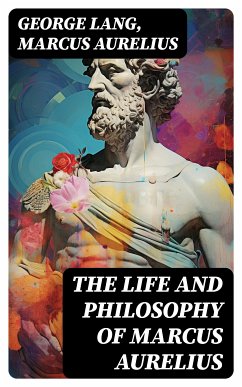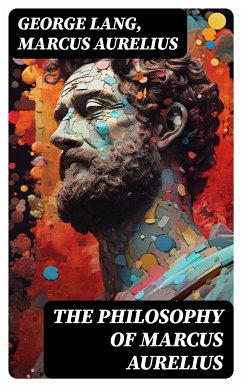
Meditations (eBook, ePUB)

PAYBACK Punkte
0 °P sammeln!
Marcus Aurelius' "Meditations" is a profound exploration of Stoic philosophy, presented in the form of personal reflections and philosophical musings. Composed during his military campaigns in the 2nd century AD, this seminal work combines a deeply introspective style with vivid observations of the human condition. Aurelius grapples with themes such as duty, virtue, the transient nature of life, and the importance of reason, making his thoughts both timeless and universally relatable. The text is characterized by its direct, unembellished prose, echoing the Stoic principles of clarity and simp...
Marcus Aurelius' "Meditations" is a profound exploration of Stoic philosophy, presented in the form of personal reflections and philosophical musings. Composed during his military campaigns in the 2nd century AD, this seminal work combines a deeply introspective style with vivid observations of the human condition. Aurelius grapples with themes such as duty, virtue, the transient nature of life, and the importance of reason, making his thoughts both timeless and universally relatable. The text is characterized by its direct, unembellished prose, echoing the Stoic principles of clarity and simplicity, and reflects a rich philosophical context that intertwines personal and communal ethics, emphasizing the value of resilience in the face of adversity. Marcus Aurelius, a Roman Emperor and a philosopher, is often revered as the embodiment of Stoic ideals. His life was marked by challenges, including wars and personal losses, which catalyzed his writings in "Meditations." His unique perspective as a ruler navigating the complexities of power and morality lends a remarkable authenticity to his thoughts. Aurelius' philosophy is not merely theoretical; it is rooted in the realities of his existence and offers insights into maintaining equanimity amid chaos. This book is a timeless guide for anyone seeking wisdom and guidance in navigating the complexities of life. Readers will find inspiration in Aurelius' reflections, encouraging them to pursue virtue and mindfulness in their personal journeys. "Meditations" is not just a philosophical treatise but a companion for those striving to cultivate resilience and inner peace in a turbulent world.
Dieser Download kann aus rechtlichen Gründen nur mit Rechnungsadresse in A, B, BG, CY, CZ, D, DK, EW, E, FIN, F, GR, H, IRL, I, LT, L, LR, M, NL, PL, P, R, S, SLO, SK ausgeliefert werden.













